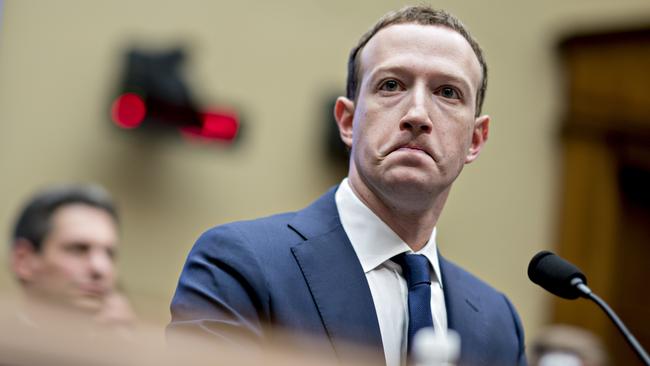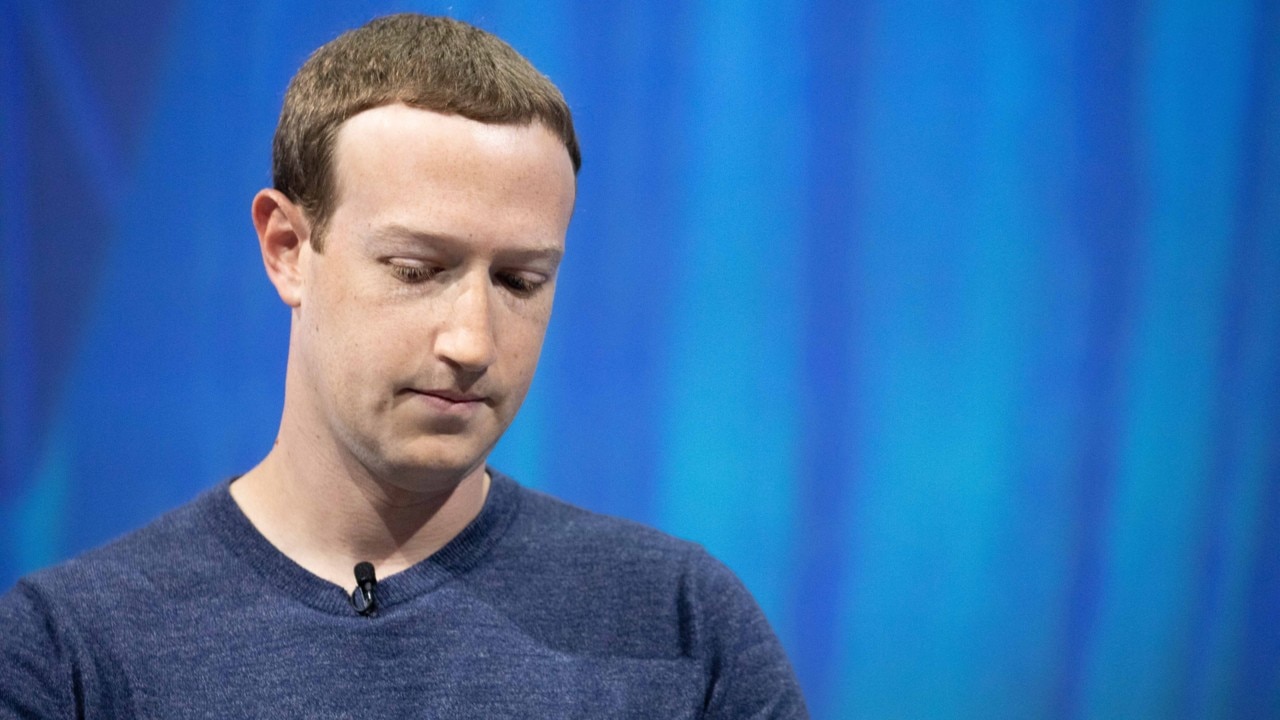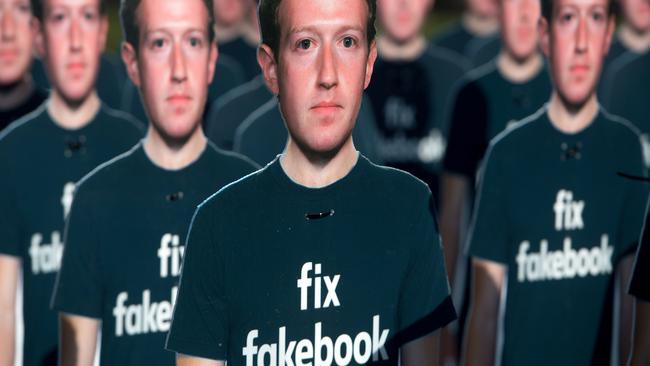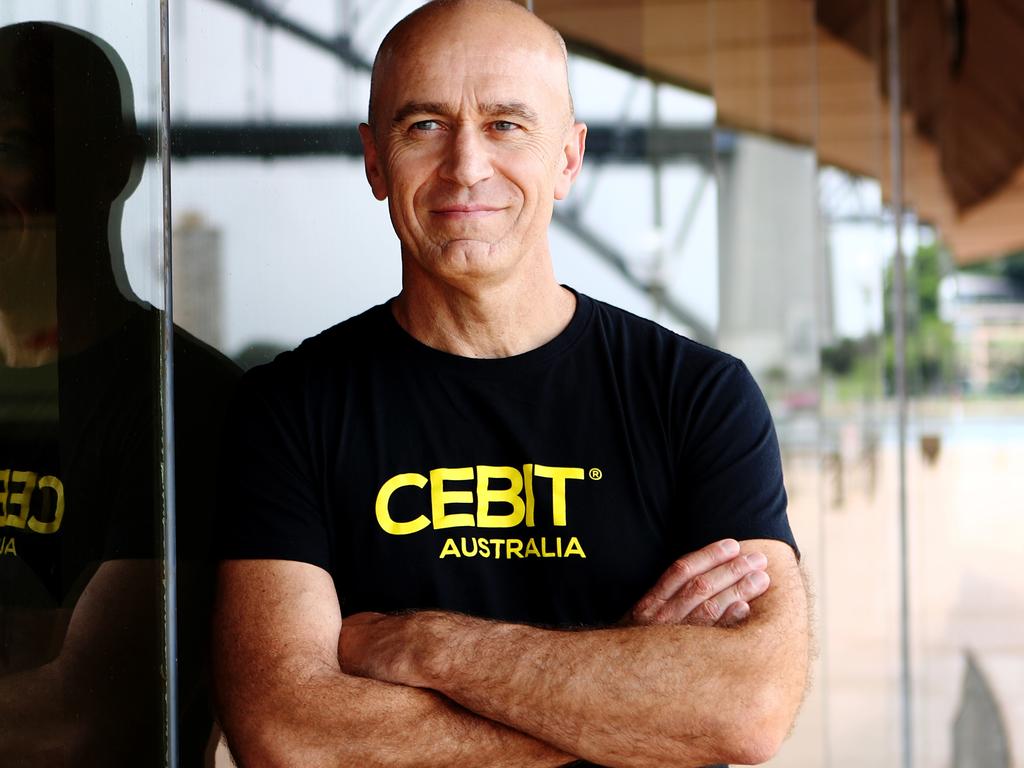Mark Zuckerberg’s spectacular Facebook own goal a win for news

The US tech giant’s decision to ditch news should allow real news organisations to flourish in Australia.
Facebook will become the home of fake news and conspiracy theories now it is banning legitimate Australian news sources and even international news from its platform.
Users won’t be able to view or share local and international news content. Globally, sharing links from Australian publishers also will be banned.
So what will be left of news on its platform? Presumably sites that aren’t official news sources. Many of those will be the shonky news sites with fake news and conspiracy theories that don’t qualify as news. They will have more prominence unless Facebook’s rather shaky vetting system catches them.
And just which sites are legitimate news sites? What about our friends at rt.com (Russia Today) with their Kremlin-friendly focus on world events? Will that be classed as legitimate international news or will it make it past the Facebook news gatekeepers?
Having said that, there will still be a cost for news organisations, with fewer direct links to news posted on the platform in general feeds.
However the internet’s history is one of big players that regard themselves as the gateway to the internet and indispensable falling away over time and being replaced. Sites like MySpace, Yahoo and AOL (America Online) come to mind. AOL still bills itself as an American web portal but Americans are unlikely to agree.

Not a total loss
The loss of news on Facebook is by no means total. Presumably Facebook won’t ban the discussion of news reports on mainstream media which will implicitly refer back to where news came from. If it did, it would be no better than China’s government. What about news site logos added as photos in posts?
Any decent social media expert will tell you that the best way for news organisations to gain prominence on Facebook is through engagement, discussion, and connecting with enthusiasts through its groups network. How will it police that?
For Facebook, the risk is that users will quickly find another source for news, which is typically what happens when an online service is discontinued. An alternative is just a mouse click or two away.
Over time news organisations might get together and create their own one-stop-shop portal for news. Who knows. But the gap will be filled.
It’s fortuitous for Google that it has finally reached agreement with the mainstream news organisations, as News Showcase can take on new relevance for it.
The code devised by the ACCC that requires payments for news is about to become law, and Google remains under pressure to maintain these agreements or fear a bigger push towards news organisations wanting big tech to pay for news links from its search engine if any agreements unravel.
If they don’t get news through Facebook, Google News Showcase which the main publishers have signed up to, might be the place to go.

Back to the future
For Facebook it will be back to the future. It will be more about people sharing their social pics and private lives and opinionating on whatever. Multitudes of photos of family dogs and cats will return to the prominence they enjoyed in Facebook’s early days.
It will have to draw a boundary line between what constitutes legitimate local and international news in Australia, and what does not. What happens to the Facebook sites and groups operated by media organisations in Australia? What happens to the personal sites of journalists working at these news organisations who discuss news reports? Are they taken offline too?
In its blog, Facebook says: “We are using a combination of technologies to restrict news content and we will have processes to review any content that was inadvertently removed.” So will it be a case of leaving it to the algorithms?
There are already reports of content disappearing from Facebook from small Indigenous news communities in Australia, a domestic violence organisation, weather and health news sites, a utility and museum. It sounds like one unholy mess.
Facebook is addressing the massive overreach of its algorithms beyond news, but this mess could have been avoided if Facebook had tested its algorithms in advance. It should have had the courtesy to warn organisations ahead of this move before carrying it out.
I typically get weeks of warning if, say, a tech service decides to take a cloud service offline. Even Google has given months of notice ahead of its plan to charge more for Google Photos, so that users can decide what to do.
Here, organisations were given zero time to advise their readers of other means of accessing their content. It’s common courtesy across the industry and another reason why Facebook doesn’t deserve being a conduit of important information to the community. It has rendered itself unreliable and unworthy.

Finally to Facebook CEO Mark Zuckerberg. He was reported recently as wanting to “inflict pain” on Apple for its decision to require users to opt into app tracking on Apple mobile devices. Facebook stands to lose the ability to know what apps people use on Apple devices.
Perhaps Mr Zuckerberg similarly sees the banning of international and local news on Facebook in Australia as inflicting pain on news organisations for wanting a share of revenue for displaying news, and on the Australian public at large.
This will harden the resolve of the Australian people and government. Australians so far seem unperturbed.
“I‘m actually hoping this will be the beginning of the end for this platform, which started out with cat videos and good intentions, but has really become a medium that enables the spread of hate speech and ideas, has ruined countless lives and has stunted an entire generation’s social development,” says one online comment.
“The good news is that Facebook users might now source their news differently. This could be the end of Facebook echo chambers. That might result in a less polarised community,” says another.
In 2020, Facebook posted net income of $US29.1bn ($37.5bn) with $US86.0bn ($111bn) in total revenue. It’s not a calamitous move for Facebook to share revenue from ads served to users lingering on its platform reading news.
Rather than inflicting pain on Australian society, Facebook’s move looms as an own goal. It is already buckling under the pressure to be made more accountable, content wise and financially.







If Facebook doesn’t display local and international news in Australia, it won’t take long for online Facebook users to migrate to another portal that does; one that could prove lucrative to the news organisations.